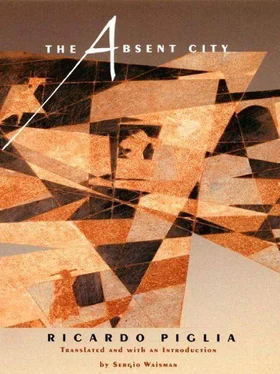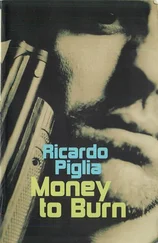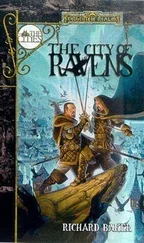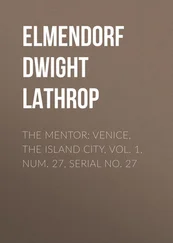“Many are apocryphal.”
“You’re starting to believe what you write,” Hannah said.
She was drinking whisky from a small plastic cup. It was three in the afternoon.
“I’ve been receiving some pretty strange phone calls,” Junior said. “I met with a woman at the Hotel Majestic, the other day. Fuyita, you know him? He works in the Museum. A kind of head of security. I went to see him,” Junior said. “He passed some material on to me.”
“Aha,” Hannah said. “You’re going to publish it?”
“I don’t know,” Junior said. “Someone is selling false copies in a shop in Avellaneda. It’s a garage on Av. Mitre, they fix TV’s, but they’re working on the political series.”
“I know it,” she said.
“Peronists. Ex-Peronists, guys from the Resistance. I’m trying to follow the track that leads to the Engineer.”
“Is it true that you’re from Bolívar?” she asked suddenly.
“No, I’m not,” Junior said. “I lived there for a while, when I was little. Near there, in Del Valle, there was a convent and a school there.”
“Aha,” Hannah said. “Many are running away to the countryside now. No longer to the south, to the valley, but to the Pampas itself. They put up a shack and plant something, hook up by radio. They move from one place to another. They go around in those shabby old cars and use shortwave receivers. It’s hard to find a guy hiding out in the middle of the barren plains. The old vagrants used to do that. Anarchists, philosophers, mystics, when the going got tough and they tried to come down on them, they’d jump a freight car. Vagrants,” she continued. “Macedonio was also out in those plains. He carried around a little notebook and was always jotting things down.”
She paused and walked to the window. The inside of the bookstore was in the shadows, the bookshelves stood out in the semi-darkness like rusted excavations.
“They want to disactivate her,” Hannah said. “They say that they are going to call in the Japanese.”
“Japanese technicians, just what we need,” Junior said. He imagined them going into the Museum, cutting off the lines of communication, isolating the white hall. They had published a few pictures taken with photoelectric cells. All the tissues were okay. But still, something was dying.
“She has started talking about herself. That is why they want to stop her. We are not dealing with a machine, but with a more complex organism. A system of pure energy. In one of the last stories there is an island, at the end of the world, a kind of linguistic utopia about life in the future. It’s a myth,” Hannah said, “a fantastic story circulating from hand to hand. A man is shipwrecked and survives and builds an artificial woman with parts that the river washes up on shore. And she stays on the island after he dies, waiting on the shore, mad with loneliness, like a new Robinson Crusoe.”
On the screen of the muted TV there was a street with glass buildings, in a city that looked like Tokyo, or perhaps São Paulo. Junior saw billboards written in Spanish and a newspaper stand on a corner. It was Mexico City. Apparently it was a documentary on earthquakes on the west coast.
“Do you know what Macedonio did when Elena died?” Hannah asked after a pause.
“He retired,” Junior said.
“Yes, he retired,” she said. She would not have told him if he had not said it first.
“I have been following this story for two months, I came here because I want you to help me,” Junior said.
“When she got sick, Macedonio decided that he would save her. There are several unaccounted days where no one knows where he was. Apparently he went to a large cattle ranch, in Bolívar. There was an Engineer around there, Russian. You have to follow that track,” Hannah told him. “A Hungarian Engineer who had worked with Moholy-Nagy and was one of the major collectors of automatons in Europe. He came here to get away from the Nazis and to look for a mechanical bird. They start pursuing him when Perón falls. That’s one track. Look,” she said to him, and turned on the projector. Junior saw the portrait of a man with an honest face and small round glasses working in a lab.
“That’s him,” Hannah said. “The story begins in 1956, in a small town in the province of Buenos Aires.”
They say he was seen arriving in town one afternoon in a cart, and that right away they called him the Russian, although he was apparently Hungarian or Czechoslovakian, and when he was drunk he swore that he was born in Montevideo. To make things simpler and not have any problems, people from the countryside call anyone who speaks unusually Russian. He was Russian and his son was named the Russian when he was born. But we are not there yet. First they saw this stranger arrive in the cart and cross the railroad tracks. It was July and the frost was beginning to lift, but he walked around in short sleeves as if it were spring. Around here the Basque Usandivaras used to go out barefoot to milk the cows, winter or summer, but the Russian was unequaled, he never wore winter clothes, he was made for the polar cold, and the frosts of the Province of Buenos Aires did not affect him at all. He was always hot and everyone felt sorry for him, because a man who clashes with the weather looks like he is mad. He had a letter for the intendant, and a long time went by before we learned that he had stolen the letter and the cart from a dead man. The intendant around that time was Ángel Obarrio. He had been appointed by the so-called Liberating Revolution of 1955, and had placed half of the Peronists in Bolívar under arrest, but a week later he had to let them go because there was nobody to look after the animals. It was the winter of ’56, the worst one ever. The white air, the puddles in the street like glass. Around then is when the Russian’s cart showed up. “Come on. You stupid ass. Shit,” he said, but in his language, and shook the reigns, one in each hand, like a gringo. They gave him work at the Federal Shooting Range, and he lived there in a small room out back, near the tub where they cooked up the paste to put up the targets. He mowed the lawn and opened up on weekends when the idiots went down to shoot at the targets. Hardly anybody went during the week, except for the draftees, who came sometimes from Azul, and Doctor Ríos, who had been an Olympic champion in Helsinki and came to train on Tuesdays and Thursdays. The Russian would wait for him, and open the cat-holes of the hall just for him, and watch him prepare his weapons and then raise his left arm and take aim.
They became friends, if you can call it that. Ríos explained to him what the town was like and what he needed to do in order to survive. “Practice target shooting,” Ríos would laugh. He did not know that the Russian had killed a man by crushing his skull against the train rails. They had locked him up in the insane asylum because he was unable to make himself understood. He said he had killed the man because of the heat, because it was siesta time and the glare from the sun had blinded him along the railroad tracks. He spent five years at Melchor Romero. Every once in a while he would escape and take off for the hills around Gonnet, but sooner or later he returned to the asylum, thin as a corpse and sick from eating raw birds. Finally he came to this part of the province, following the crops. He was very good with his hands, he was always inventing little devices and taking clocks apart. Ríos was the first one who realized that the Russian was an extraordinary man. Then he wanted to know. He went to the intendant’s office and asked to see the letter that the Russian had brought with him. It was a handwritten note from Videla Balaguer, guaranteeing that the man carrying the letter had rendered invaluable services toward the cause of the Liberating Revolution in the glorious days of September 1955. He must have been in the paramilitary units, and that is why Obarrio had assigned him to the Federal Shooting Range. He assumed that he was a man of action and knew his way around weapons. He made a few inquiries. All the facts checked out.
Читать дальше












